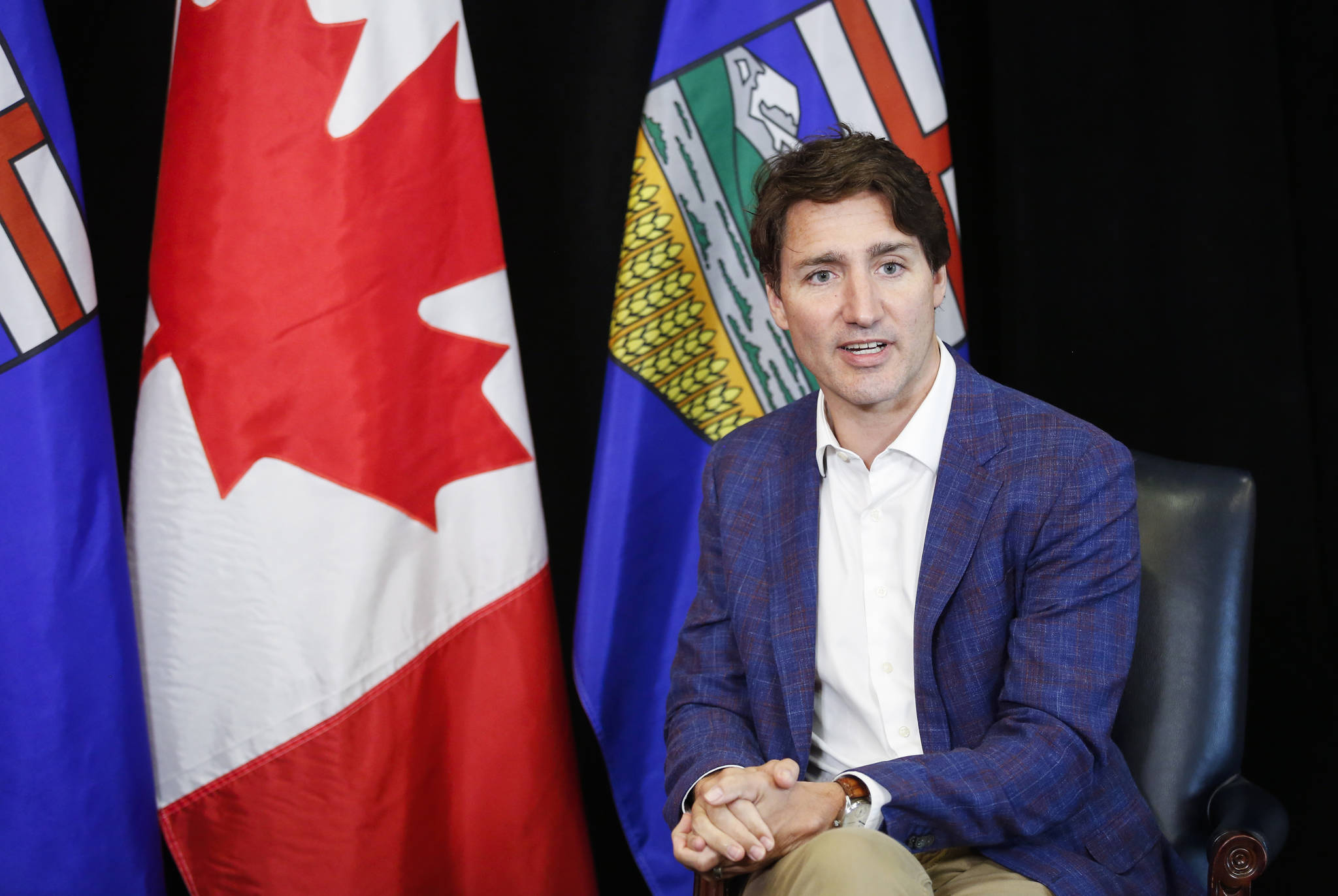By Rob Giles
Associated Press
TORONTO — Prime Minister Justin Trudeau said on Thursday that Canada could start allowing fully vaccinated Americans into Canada as of mid-August for non-essential travel and should be in a position to welcome fully vaccinated travelers from all countries by early September.
Nothing definitive about reopening the border has been announced, according to Ryan Malane, co-owner of the Black Ball Ferry Line, which operates the Coho ferry between Port Angeles and Victoria.
“We have no formal agreement on the border reopening right now,” he said Friday.
“We anxiously await news of when that could occur,” perhaps as early as next week.
Ryan Burles, the company’s president and chief operating officer, told the Victoria Times-Colonist that he hoped the ferry would be operating by the end of August.
Trudeau spoke with leaders of Canada’s provinces and his office released a readout of the call. He noted that if Canada’s current positive path of vaccination rate and public health conditions continue the border can open.
“Canada would be in a position to welcome fully vaccinated travelers from all countries by early September,” the readout said.
“He noted the ongoing discussions with the United States on reopening plans, and indicated that we could expect to start allowing fully vaccinated U.S. citizens and permanent residents into Canada as of mid-August for non-essential travel.”
Trudeau noted Canada continues to lead G20 countries in vaccination rates with approximately 80 percent of eligible Canadians vaccinated with their first dose and over 50 percent of eligible Canadians fully vaccinated. He said case numbers and severe illness continue to decline across the country as vaccination rates continue to increase.
In the early days of the pandemic, the U.S. and Canadian governments closed the more than 5,500-mile border to nonessential traffic. With increasing vaccination rates and dropping infection rates, some were annoyed the two governments hadn’t laid out detailed plans to fully reopen the border.
Canada began easing its restrictions earlier this month, allowing fully vaccinated Canadians or permanent legal residents to return Canada without quarantining. But among the requirements are a negative test for the virus before returning, and another once they get back.
Pressure has been mounting on Canada to continue to ease the restrictions at the border, which have been in effect since March of last year.
Providing exemptions for travel into Canada amid the pandemic is politically sensitive and Trudeau is expected to call a federal election next month.
Trudeau said his ministers would share more details on the border early next week.
Commercial traffic has gone back and forth normally between the two countries since the start of the pandemic. Canadians are able to fly into the United States with a negative COVID-19 test.
The U.S. Travel Association estimates that each month the border is closed costs $1.5 billion. Canadian officials say Canada had about 22 million foreign visitors in 2019 — about 15 million of them from the United States.
Tom Webb, a 63-year-old retired US navy pilot from Orchard Park, New York, said he’s seriously thinking of selling his cottage in Georgian Bay, Ontario after not being to access it for almost two years. He is vaccinated. “I am beyond frustrated,” he said.
Canadian officials have said they would like 75 percent of eligible Canadian residents to be fully vaccinated before loosening border restrictions for tourists and business travelers. The Canadian government expects to have enough vaccine delivered for 80 percent of eligible Canadians to be fully vaccinated by the end of July. The U.S. only allowed for exports of vaccines into Canada in early May.
Major League Baseball and the Toronto Blue Jays are hoping to win an exemption to allow for home games to be played in Toronto starting July 30. Allowing unvaccinated players into the country remains a sticking point but protocols will be put in place. The Blue Jays played home games during the shortened 2020 season in Buffalo, New York and started this season in Dunedin, Florida, before moving to Buffalo.
The Canadian government didn’t allow the team to play at home in Toronto because of the risk of spreading COVID-19, citing frequent travel required in the U.S. during a baseball season.

